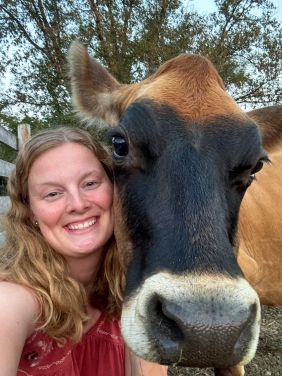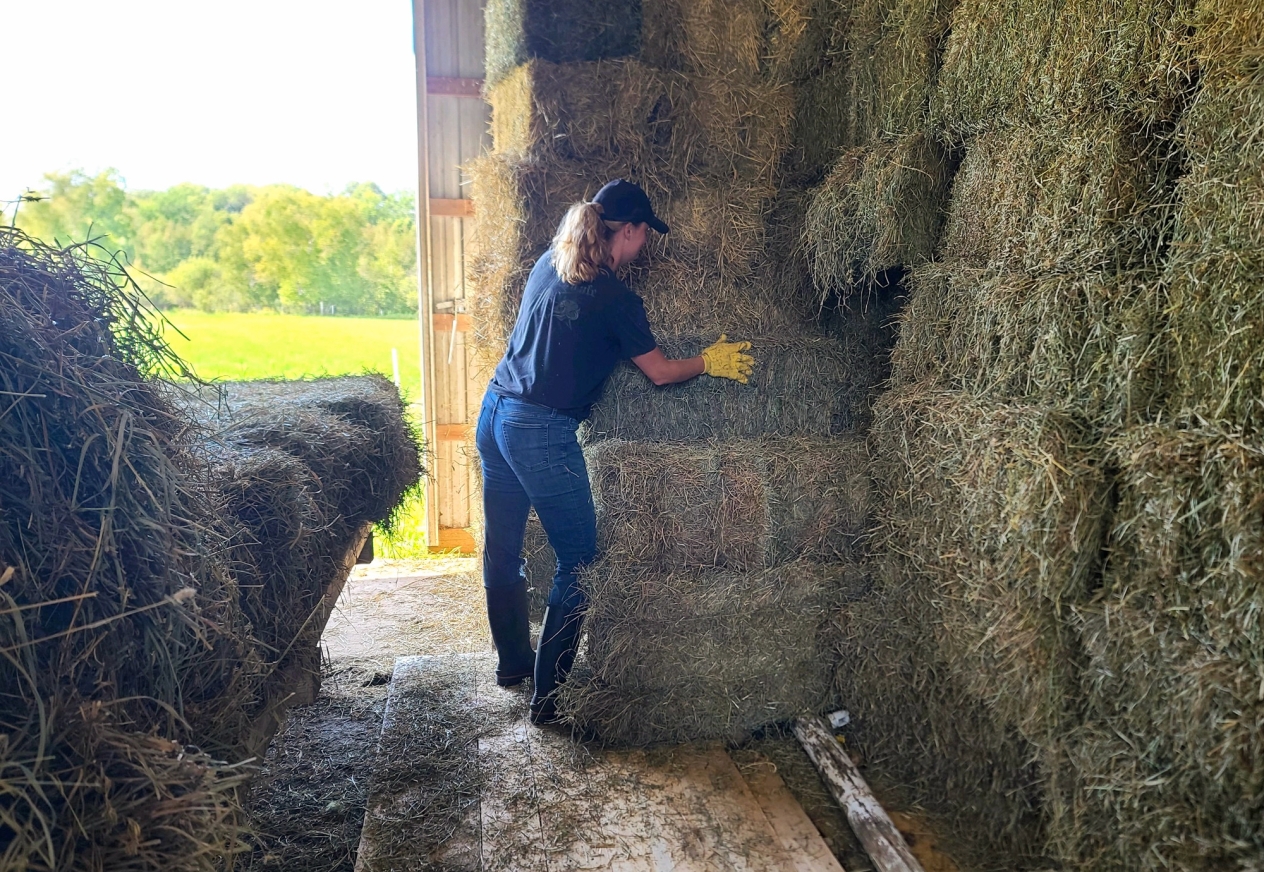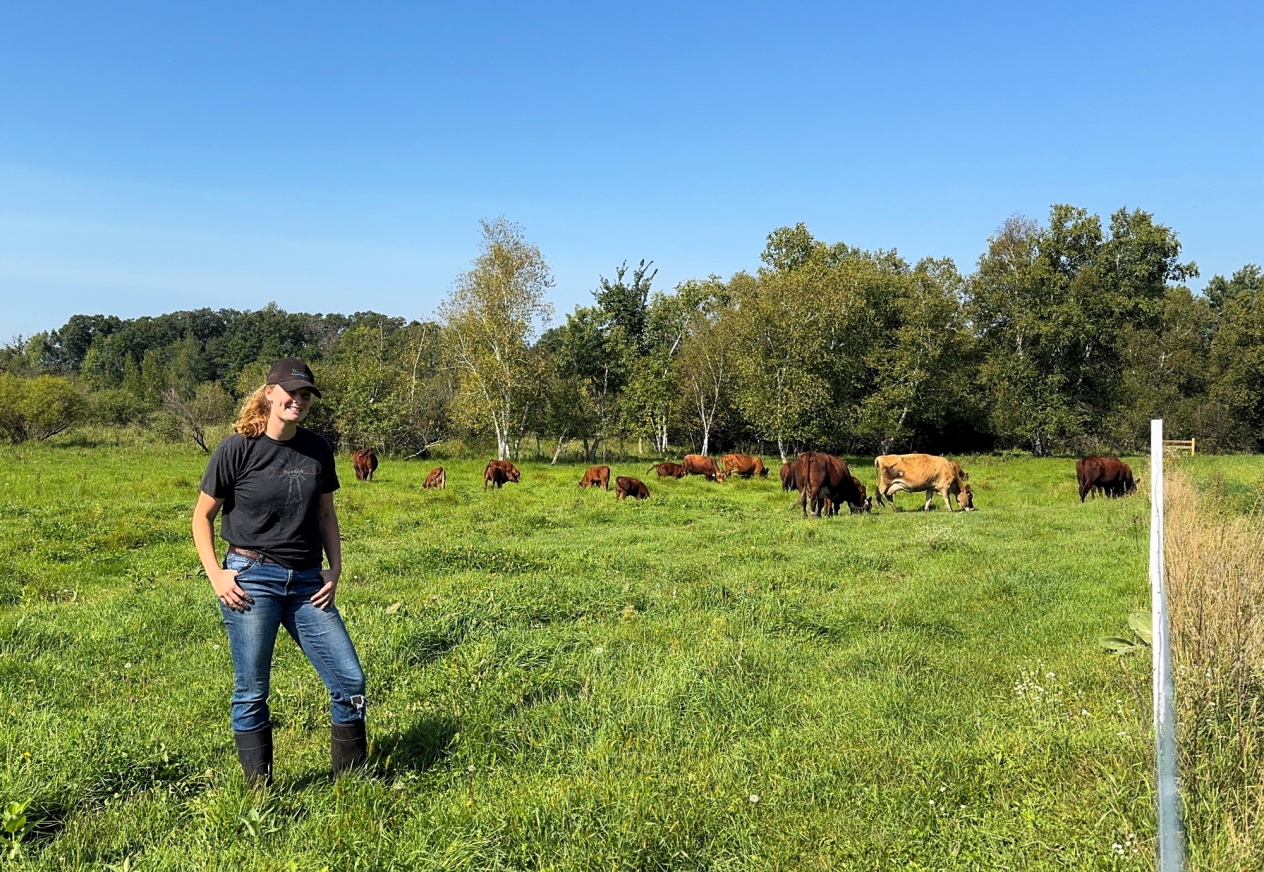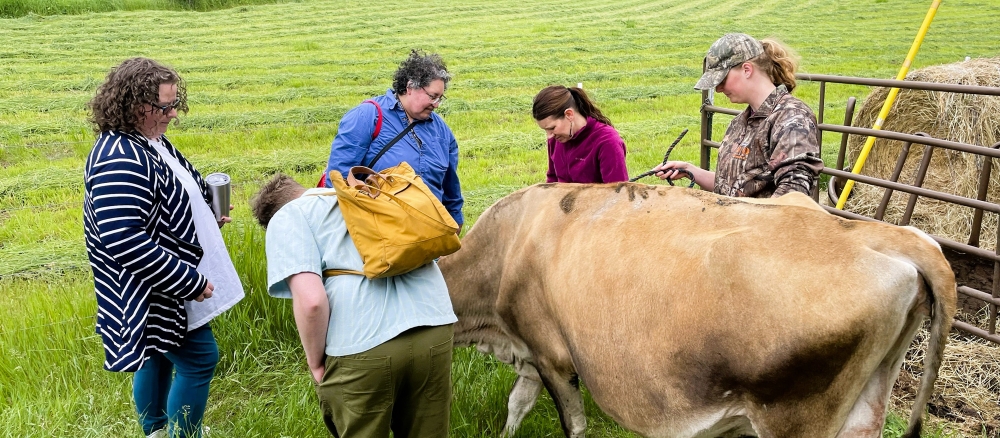Addison Otto is a rule coordinator for the MPCA, making sure the agency fulfills its role to prevent and reduce pollution and mitigate the effects of climate change. Part of this work is writing rules that meet the requirements of Minnesota law in a way that’s transparent and includes input from the public.
Q: How do you describe your job?
A: I ensure that rulemaking projects meet the requirements in Minnesota Statute. The subject matter varies from air quality to chemicals in products. The rulemaking process requires community engagement and collaboration with external parties. Rulemaking is complex and requires the consideration of both short- and long-term impacts of a rule, along with the potential for gray areas within a rule.

Q: What was your professional background before joining the MPCA?
A: I studied animal science at North Dakota State University, then transferred and earned a bachelor’s degree in elective studies from St. Cloud State University with a focus in biology. Prior to joining the MPCA, I worked for Morrison County as a feedlot officer, then Sherburne County as a land use planner. These roles required me to learn a little bit of everything from solid waste, shoreland, floodplains, zoning, inspections, and more. Working alongside farmers and landowners has allowed me to understand differing perspectives on rules, the challenges to comply with them, and how we can work together to establish resources and solutions.
Q: What kind of work do you generally do for the MPCA?
A: My day-to-day duties vary depending on the stage of each of my rule projects. If we are in an engagement stage, I review and summarize comments or prepare for webinars or other outreach. If we are in the rule development stage, I work with the technical team to write rule language and summarize our reasoning for the rule in the statement of need and reasonableness. Another important aspect of my job is to ensure that our documents are accessible and approved by agency leadership.
Q: What’s an example of a recent project you worked on?
A: I am working on a rule to require some facilities with air-quality permits located in the Twin Cities metro area to submit an annual air toxics emissions inventory to the MPCA. Currently, the agency collects only voluntary air toxics emissions reports from permitted facilities every three years. The 2023 Minnesota Legislature tasked the MPCA with requiring mandatory annual reporting for these facilities. This rule is on a legislative deadline, meaning we have 18 months to publish the notice of intent to adopt the rule. To most people, 18 months might seem like a long time, but in the rulemaking realm, 18 months is a rocket-ship timeline! I am fortunate to work with a talented and motivated technical team on this rule as we approach our publishing deadline later this year.
Q: What do you do outside of work?
A: I live on a 160-acre farm near Princeton with my husband and our two kids. We raise grass-fed beef cattle, broiler chickens, laying hens, sheep, a goat, two horses, two rescue mules, a livestock guardian dog, a farm dog, and — I like to joke — a partridge in a pear tree. Throughout the year we can be found fixing fences, hauling manure, baling hay, moving our livestock through rotational grazing paddocks, mowing pastures, and cutting brush.

My goal with everything we do on the farm is to increase sustainability and decrease our carbon footprint wherever possible. For example, in the winter we use a “bale grazing” technique where we move the cows’ round bale feeder throughout the pasture every three days. This saves us time and fuel that would otherwise be spent hauling manure in the spring if we had the feeder sitting in one spot all winter.
Q: How does this personal experience inform your work?
A: Thanks to our farm, I think I have a “boots on the ground” perspective on my work. I spend time in the agricultural community and have friends, family, and neighbors who are also farmers. Nearly every rule that is proposed by our agency has a brush with agriculture in some way. There is an important balance to strike between promoting agriculture and protecting the environment, and with careful consideration it is possible to achieve both those goals.

Q: In your work, what kind of success stories have you seen?
A: Rulemaking in general is a success story. It has been rewarding for me to watch a rule come together after knowing the hours of staff time, engagement, revisions, collaboration, and all the internal steps that have gone into the process. Rulemaking requires minds within the agency and public feedback to come together for a common goal. The rules that the MPCA writes are intended to protect human health and the environment, preserve our natural resources, increase our knowledge and transparency on pollution sources, and ultimately ensure that generations to come can continue to enjoy all that Minnesota has to offer.
Q: What challenges do you face in your work?
A: I think one of the biggest challenges we face is soliciting meaningful engagement from the public. Sometimes people are quick to comment before fully understanding what is being proposed. I recommend that people always go to the source of the proposed rule, sign up for notifications on rule updates, and engage in any webinars, comment periods, or other outreach opportunities. We need engagement during rulemaking, and the most valuable engagement is also meaningful and well-informed!
Q: If you had a magic wand to change environmental things, past or present, what would you do?
A: Agriculture gets a bad reputation sometimes, but the reality is that farmers are charged with feeding the world! In the past, people grew their own food and raised their own livestock. Today, not everyone wants to do that. I acknowledge and accept that, since I can say from experience that it’s a lot of work! But if I had a magic wand, I would bring back the age of small family farms that were passed down from generation to generation. I think we would see environmental improvements and health benefits as a result. However, since I don’t have a magic wand, I would just encourage people to shop local and support sustainable agriculture!
